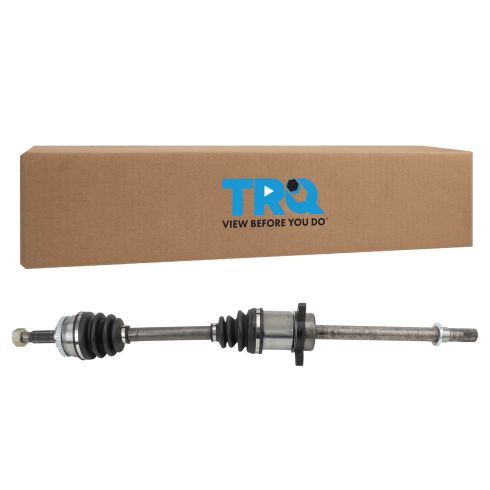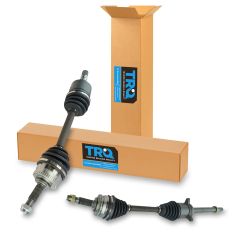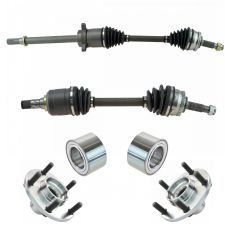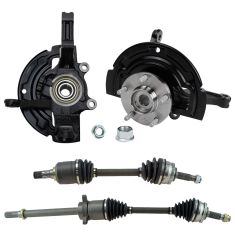1AACV00215-2002-06 Nissan Altima L4 2.5L Automatic Transmission Front Passenger Side CV Axle Assembly TRQ CSA82321

Replaces
2003 Nissan Altima L4 2.5L Automatic Transmission Front Passenger Side CV Axle Assembly TRQ CSA82321

Product Reviews
Loading reviews
4.67/ 5.0
3
3 reviews
Always great experience
October 1, 2019
I received the part on time. It is currently on the car mo issue.
Easily replaced my old CV Axle
June 15, 2020
This axle replaced my old one whose boot tore out. Easily done with 1A-Auto's video and a couple of others found on the internet. The only issue I had was that the replacement nut on the new CV Axle was larger than the original and I didn't have a socket for that size. So I just used the old one. Threaded right on with no issues. That's the only thing that prevented a 5x5 review.
Good
January 8, 2024
Working great.
Customer Q&A
No questions have been asked about this item.
Nissan is a registered trademark of Nissan Motor Co., Ltd. 1A Auto is not affiliated with or sponsored by Nissan or Nissan Motor Co., Ltd.
See all trademarks.












